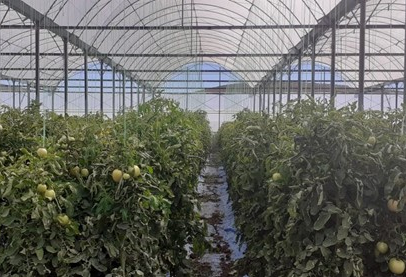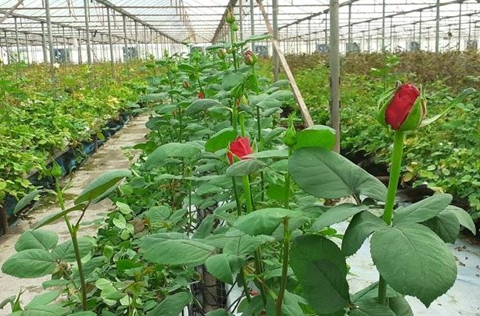Automated precision irrigation: achieving predictable yields despite climate changes
The automated precision irrigation allows farmers to achieve predictable crop yield despite the climate changes
Climate changes happening worldwide are undisputable. The last decade has been the hottest since records have been taken, with heat waves and drought in areas that usually receive good rainfall. Changing climate conditions negatively affect the crops, particularly in regions where farmers have become used to counting on rain or water sources to irrigate the crops.
But, with less rain and an ever scarcer drinking water available, the access farmers have to irrigation water becomes pretty difficult in terms of quantity and regularity. And when crops do not get the irrigation they require, depending on their growth stage, the yield is way less and of poorer quality.
Problem: Farmers need security but cannot guarantee predictable output
 To ensure the procurement of fresh fruits and vegetables, supermarkets often contract farmers directly, thus supplying their customers with high-quality and better-priced local supply. Having the produce contracted well in advance also brings a much needed security for the farmers. But irregular irrigation drives the quality and quantity of the crop way below the expected and the agricultural output contracted cannot be met. Predictability, which is key for supermarket supplies, becomes difficult to achieve.
To ensure the procurement of fresh fruits and vegetables, supermarkets often contract farmers directly, thus supplying their customers with high-quality and better-priced local supply. Having the produce contracted well in advance also brings a much needed security for the farmers. But irregular irrigation drives the quality and quantity of the crop way below the expected and the agricultural output contracted cannot be met. Predictability, which is key for supermarket supplies, becomes difficult to achieve.
Government subsidies for the farmers cannot be a solution
In many countries farmers request compensation from the government for the losses they incurred due to bad harvests and contracts not met. But, climate changes are unlikely to get reverted and unless measures are taken, bad harvests due to scarcity of irrigation water will continue. Governments cannot pay subsidies forever, right?
Government efforts should be refocused to supporting farmers to invest in automated precision irrigation solutions
Rather than subsidizing farmers for their losses, the government should make focused efforts to encourage and financially support farmers to invest in automated precision irrigation solutions. These solutions, consisting of drip irrigation systems integrated with irrigation automation, are the key to utilizing the water resources in the best possible way. Precision irrigation delivers water right to the root of the plant, at the right quantity it needs depending on its stage of growth. This ensures that irrigation water will be used in the best possible and most economical way. Precision irrigation also allows the precise fertigation of the plants during the watering process, cutting down the fertilizer used.
When automation is added to precision irrigation, the efficiency is even higher. Thanks to automated irrigation based on sensors and target set, farmers can efficiently irrigate their crops with up to 85% less water used. And the fact that farmers also get a boost in their crop yield with as much as 20-30%, clearly shows that with automated precision irrigation the irrigation needs of the plants are perfectly met, and this pays out.
 Less water required means less problems to secure this resource, lower costs and higher profit margins. But the most important end result is - farmers can ensure predictable crop yield, guarantee the agricultural output and achieve peace of mind for everyone working in the sector.
Less water required means less problems to secure this resource, lower costs and higher profit margins. But the most important end result is - farmers can ensure predictable crop yield, guarantee the agricultural output and achieve peace of mind for everyone working in the sector.
By 2050, the world's population is expected to reach 10 billion. This means even more agricultural produce needed, within the same natural resources we have. With arable land already scarce, and climate changes rapidly reducing the availability of irrigation water, it is obvious that we need to make a steady move in terms of increasing water usage efficiency for agricultural needs. The automated precision irrigation is a big and much needed step in this direction.



